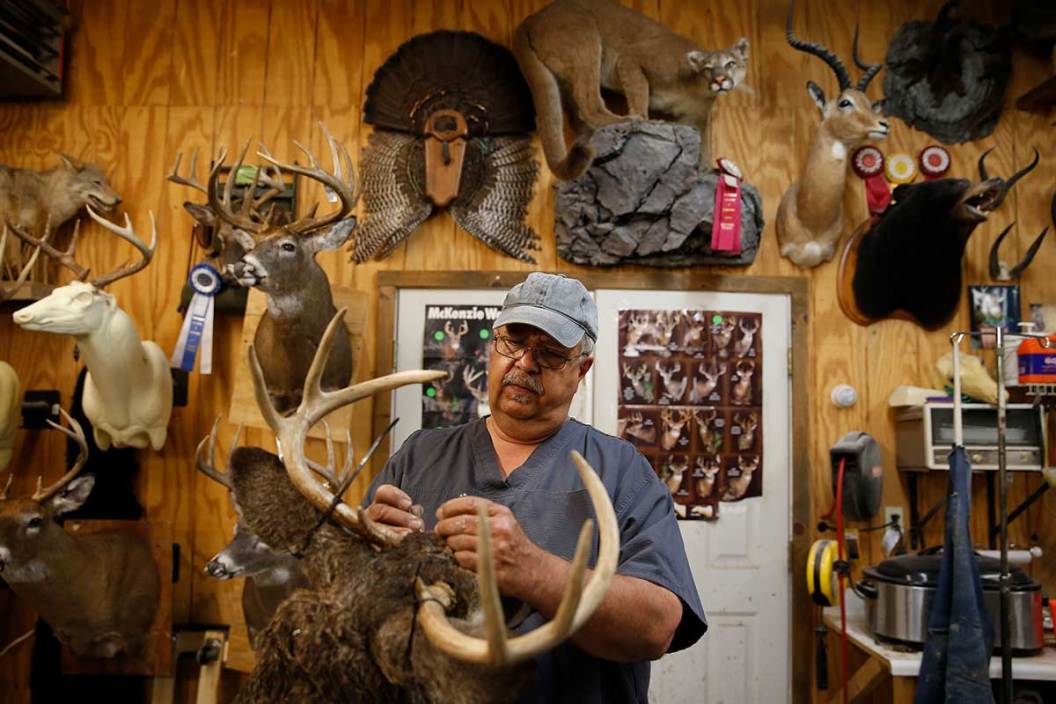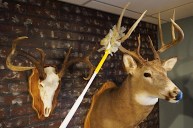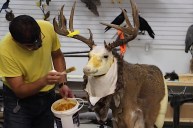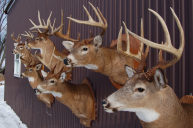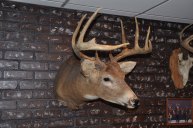When choosing a taxidermist to preserve your trophy of a lifetime, these are the most important factors to consider.
A wise friend once told me there are three things you should never skimp on: coffee, toilet paper, and taxidermy. And he wasn't wrong. A botched mount can tarnish the memory of your once-in-a-lifetime hunt and do a great disservice to the trophy you worked so hard to tag.
Here's how to evaluate a taxidermist before leaving your prize in their hands.
1. Showroom
A good taxidermist should be able to show you examples of his or her work via a trophy room or taxidermy studio. Scope out finished mounts for lifelike realism, attention to detail, and position variety. Any pro worth their salt will want to showcase their taxidermy work to potential clients.
2. Recommendations
https://www.instagram.com/p/CVmT4-8Luht/
Even better than an impressive showroom is first-hand experience with a taxidermist's skills and professionalism. Ask around and get recommendations from your hunting buddies on who does good work and who to avoid like the plague. Online reviews can be helpful too, but be aware, some of these can be faked.
3. Species Expertise
Just because your local taxidermist creates whitetail works of art doesn't mean he can handle exotic species or wildlife native to a completely different part of the country. When I arrowed my first antelope a few years ago, the outfitter strongly encouraged me to send it to their local taxidermist who'd completed hundreds of pronghorn mounts. While I may have been able to save some money taking it to a local taxidermist back home, he would've been ill-equipped to work with an animal he'd never seen before. When I got the shoulder mount back a few months later, I was so happy I dropped a few more bucks to get it done right.
If you're hunting out of state, consider keeping your animal there with a seasoned pro and having it shipped to you once it's done. Look for professional taxidermists who specialize in your harvested animal, be it big game or waterfowl or even antlers in velvet, should you be so lucky.
4. Methods & Outsourcing
How does this taxidermist complete European mounts? Do they do tanning themselves or do they outsource it? Can they be sure you're getting your hide back, and not someone else's? These are all important questions to ask, depending on what services you're selecting.
5. Pricing, Experience & Timeline
https://www.instagram.com/p/BiPMfsrBKVd/
These can all go hand-in-hand. Expect to shell out a pretty penny for a high-quality mount completed in a reasonable timeframe. If the quote seems too good to be true, it probably is. Are they doing this full-time or is taxidermy just a hobby?
A seasoned taxidermist will charge for his time and experience, so don't expect a bargain if you want a piece you can be proud of. Too quick of a turnaround should also be a red flag.
Try to strike a balance between adequate knowledge, realistic turnaround, and reasonable rates. Pricing will vary depending on where you live, so do some research and compare options.
6. Professional Recognition
The best taxidermists will likely have some industry awards or recognition under their belt from taxidermy competitions through professional organizations such as the Nationals Taxidermists Association or at events like the Great American Outdoor Show. Those exhibiting at the SCI Annual Convention and the like are also safe bets.
NEXT: 15 OF THE COOLEST TAXIDERMY MOUNTS FROM THE 2020 SCI CONVENTION
